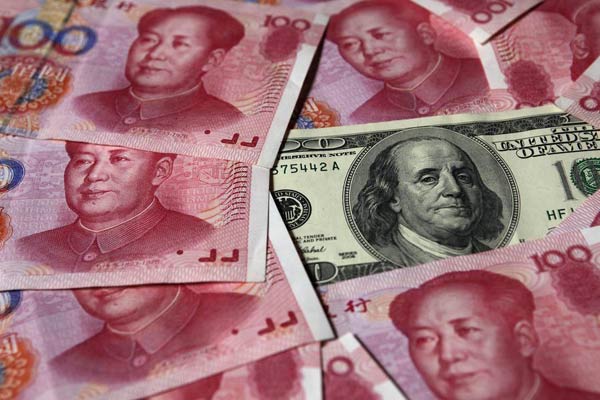 |
|
A $100 banknote is placed next to 100 yuan banknotes in this Oct 16, 2010 file picture illustration taken in Beijing. [Photo/Agencies] |
China is to adopt a new national market access system from 2018 for domestic and foreign investors, part of steps to make the market more attractive to them.
The "negative list" system will help to identify sectors and businesses that are off-limits, in addition to the existing investment approval method of specifying categories of "encouraged", "prohibited" and "restricted".
A guideline for adopting a negative list approach for regulating market access was approved at a meeting of the Central Leading Group for Comprehensively Deepening Reforms presided over by President Xi Jinping last week.
The approach will be promoted in some pilot regions during the next two years and will be implemented nationwide from 2018, the National Development and Reform Commission said in a statement on Monday.
The negative list system will be applied equally to foreign and domestic investors, as well as private and State-owned ones, according to a commission official.
Details of the new system have still to be announced, the official said. However, the guideline includes a top-level design for negative-list policies and highlights the requirements, tasks and support policies.
According to the commission, the negative list will apply to initial investment, additional investment, mergers and other investment activities, and market entry practices.
The list must be drawn up in a transparent and gradual manner and must conform with the law, it said.
The list will be formulated by the State Council, and local governments have no authority to change the items without approval from the State Council.
The guideline also paved the way for drawing up a negative list for foreign investors, who will be regulated separately, the official said.
Zhang Jianping, a senior researcher at the Institute for International Economic Research under the commission, said: "It's significant to switch to a negative list management system, and China will unleash more potential to attract foreign investment, particularly in the service sector."
The latest version of the Catalog for the Guidance of Industries for Foreign Investment was issued on April 10. It made the service and manufacturing sectors more accessible by cutting the number of restricted sectors from 79 to 38.
The negative list method gained significant momentum after being adopted by the China (Shanghai) Pilot Free Trade Zone on its establishment in 2013. In April, Guangdong, Tianjin and Fujian were announced as new free trade zones. All four zones share the same negative list.
